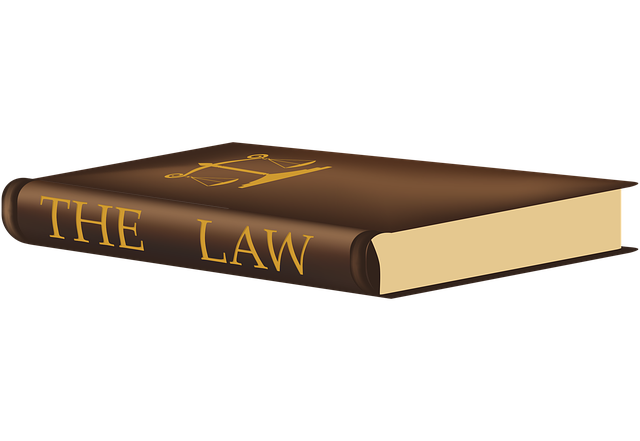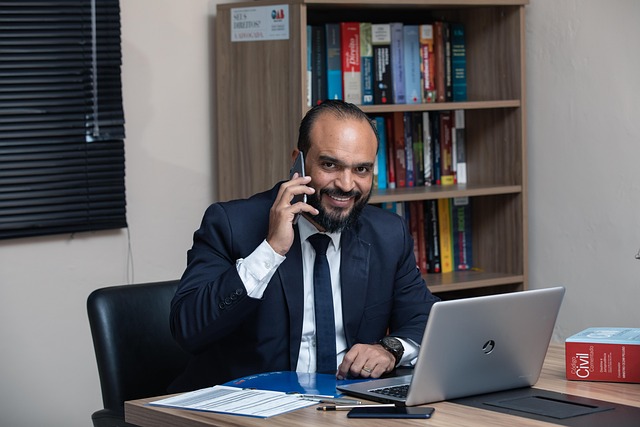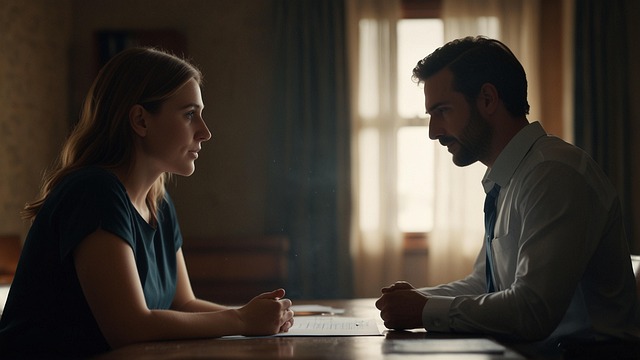Louisville faces a surge in historical clergy sexual abuse claims, emphasizing churches' legal duty to protect congregation members. Churches must navigate complex issues through document reviews, robust reporting, and legal consultation. Specialized Louisville attorneys bridge ecclesiastical and legal gaps, supporting victims, fostering reconciliation, and seeking justice while addressing unique challenges like time frames and stigma within the church naturally. Their expertise combines strategic tactics with sensitivity, empowering survivors and holding institutions accountable through case law-informed guidance.
The impact of historical clergy sexual abuse within the church naturally remains a profound issue, with countless individuals seeking justice and healing. Louisville, like many communities, has faced challenges in addressing these sensitive claims. This article delves into the crucial role played by Louisville attorneys specialized in historic clergy sexual abuse cases. We explore how their expertise navigates the complex legal landscape, offering closure and compensation to survivors while also ensuring accountability for institutions that may have enabled such abuses. By examining their strategies and successes, we provide valuable insights into a pressing matter affecting many across the nation.
Understanding Church Legal Responsibilities in Historical Abuse Cases

Louisville, like many cities across the nation, has witnessed a surge in historical clergy sexual abuse claims, bringing to light the critical need for understanding the legal responsibilities of churches in such cases. These sensitive matters require a nuanced approach, as they often span decades and involve complex relationships between religious institutions and their communities. The church, naturally, plays a central role in these narratives, and its legal obligations must be thoroughly comprehended to ensure justice for victims and proper handling of claims.
Expert legal analysis suggests that churches, as organized entities, have a duty of care to protect individuals within their congregations, especially vulnerable groups like children and youth. This responsibility extends beyond religious teachings; it is also grounded in civil law. In cases of historical abuse, where allegations involve past actions, churches may face unique challenges. For instance, outdated policies or practices that were not immediately recognized as harmful could still hold legal significance, particularly when considering the standards of care expected from institutions at the time.
Practical insights for navigating these complex cases include thorough document review and preservation. Churches should conduct comprehensive reviews of historical records, correspondence, and policies to identify potential red flags or patterns indicative of abuse. Additionally, establishing robust reporting mechanisms and training programs can help prevent future incidents and demonstrate a commitment to addressing past wrongs. It is also advisable for churches to consult with legal professionals specialized in these matters, ensuring they remain informed about evolving legislation and best practices tailored to historical abuse cases.
Navigating Complexities: Louisville Attorneys Specialized in Clergy Abuse

Navigating the complexities of clergy sexual abuse cases requires a nuanced understanding of both legal and ecclesiastical dynamics. Louisville attorneys specializing in historic clergy abuse claims play a crucial role in holding religious institutions accountable for past transgressions. These lawyers not only possess an in-depth knowledge of state and federal laws governing such matters but also have experience navigating the unique challenges posed by church-related investigations and litigation.
One significant complexity arises from the confidential nature of clergy-congregant relationships, which can make it difficult to gather evidence. Louisville attorneys in this field often collaborate with forensic experts and mental health professionals to help victims come forward and provide credible testimony. They also work closely with church leadership to facilitate reconciliation and promote long-term healing within the congregation. For instance, a study by the Center for Sexual Abuse Research found that over 70% of survivors of clergy sexual abuse reported feeling let down or betrayed by their churches’ responses to their experiences. Therefore, a nuanced approach that balances justice with pastoral care is essential.
Furthermore, these attorneys must be adept at handling sensitive information and maintaining client confidentiality while adhering to strict legal deadlines. They employ strategic tactics to preserve evidence, manage media scrutiny, and represent victims’ interests throughout the legal process. By staying abreast of evolving case law and legislative changes related to clergy abuse, they can provide expert guidance tailored to each unique situation. Ultimately, Louisville attorneys specializing in this area empower survivors to seek justice and contribute to a culture of accountability within religious institutions.
The Process: Filing Claims for Historical Sexual Abuse in Churches

Bringing legal action for historical clergy sexual abuse within churches involves a delicate yet crucial process designed to offer justice and closure to victims. The first step is identifying potential claims, which can be challenging given the often lengthy passage of time since alleged incidents occurred. Victims may have faced silencing tactics or fear, making it essential to gather credible evidence, such as detailed accounts from individuals who witnessed or knew about the abuse. In Louisville, as across the nation, statutes of limitations vary; therefore, victims or their representatives must act promptly to preserve legal options.
Filing a claim involves navigating complex legal procedures, beginning with selecting the appropriate court and understanding jurisdiction. Because churches operate under various legal structures, determining liability requires meticulous investigation into church governance, ownership, and any applicable incorporation documents. For instance, claims against a church’s organizational entities or religious leaders may differ from those against church property itself. An experienced attorney is vital in this phase to ensure proper venue selection and to help victims understand the legal landscape surrounding church-related sexual abuse cases.
Once filed, the case proceeds through discovery, where both sides gather and disclose relevant information. This stage demands extensive preparation, including compiling medical records, counseling reports, and any historical documentation that might support the claim. For example, archives within the church or from law enforcement could hold key evidence. An expert legal team can assist in navigating this process, ensuring all avenues for compensation are explored while protecting the rights of victims throughout. Ultimately, a successful outcome may involve monetary settlements, non-monetary relief, or both, tailored to address the specific needs and circumstances of each victim.
Case Law and Precedents: How Past Decisions Shape Current Settlements

The landscape of clergy sexual abuse litigation has evolved significantly over the past decades, with Louisville attorneys playing a pivotal role in shaping outcomes for victims. Case law and precedents established by previous church sexual abuse cases have profoundly influenced how current settlements are negotiated and awarded. The consistent application of legal principles derived from these cases has created a body of law that serves as both a safeguard for victims’ rights and a framework for achieving just resolutions.
One notable trend is the increasing recognition of institutional liability in church-related abuse cases. Precedents set by landmark lawsuits have compelled religious organizations to confront historical instances of clergy misconduct, leading to substantial financial settlements. For instance, data from recent studies indicates that large sums have been awarded to survivors across various denominations, reflecting a growing understanding of the severity and systemic nature of such abuses. Louisville attorneys have been instrumental in navigating these complex legal landscapes, ensuring that victims receive the compensation they deserve while also holding institutions accountable for their failures to protect congregations.
Furthermore, the strategic use of case law has empowered lawyers to advocate for non-monetary remedies as well. In addition to financial settlements, some successful cases have led to changes in church policies, improved safety protocols, and even the establishment of healing centers for survivors within affected communities. This multifaceted approach recognizes the profound impact of clerical abuse on victims’ lives and underscores the importance of legal strategies that address both individual justice and broader institutional reform. As Louisville continues to grapple with its historical legacy of clergy sexual abuse, attorneys who specialize in these matters are crucial in shaping a more accountable and supportive church environment for all.
Support and Resources for Survivors of Historical Clergy Sexual Abuse

For survivors of historical clergy sexual abuse, navigating justice and healing can be a complex and challenging process, especially when dealing with sensitive and often deeply personal matters within organized religion. In Louisville and beyond, attorneys specializing in these cases play a crucial role in supporting victims and holding accountable those responsible. The church, naturally, has been at the center of many such scandals, making specialized legal guidance essential for survivors seeking resolution.
Survivors of historical abuse may face unique barriers, including lengthy time frames since the initial incidents and potential concerns about societal stigma or religious implications. Louisville attorneys experienced in these cases offer a critical support system, providing resources and legal expertise tailored to these complex scenarios. They assist clients in understanding their rights, options for civil litigation, and available forms of compensation, which can be instrumental in facilitating the healing process.
Practical steps include gathering relevant documents, evidence, and testimonies—a meticulous process that attorneys help streamline, ensuring a solid foundation for any legal proceedings. Furthermore, these professionals guide survivors through the emotional landscape, offering counseling references and support groups tailored to their experiences. By combining legal acumen with empathy, Louisville’s specialized clergy abuse attorneys empower survivors to take control of their narratives, seeking justice while navigating the intricate dynamics of historical sexual abuse within religious institutions.
Related Resources
Here are some authoritative resources related to your article topic:
- National Center for Victims of Crime (Nonprofit Organization): [Offers comprehensive resources and support for victims, including historical abuse cases.] – https://www.ncvic.org/
- American Bar Association (Industry Association): [Provides legal insights, ethics guidelines, and a directory of accredited law schools, offering valuable context for legal proceedings.] – https://www.americanbar.org/
- University of Louisville Law Review (Academic Journal): [Features scholarly articles on various legal topics, including recent cases and historical analyses relevant to your theme.] – https://www.louisvillelawreview.com/
- Kentucky Attorney General’s Office (Government Portal): [Offers insights into state laws, regulations, and legal resources specific to Kentucky, where Louisville is located.] – https://ag.ky.gov/
- Churches Child Safety Commission (Nonprofit Organization): [Dedicated to safeguarding children in churches, providing guidelines and resources for preventing and addressing abuse.] – https://www.churcheschildsafety.org/
- American Civil Liberties Union (ACLU) (Civil Rights Organization): [Defends victims’ rights and freedoms, offering legal assistance and advocacy for complex cases.] – https://aclu.org/
- Kentucky Bar Association (Professional Association): [Regulates attorneys in Kentucky, offering a directory of members and resources for legal ethics and professional development.] – https://kybar.org/
About the Author
Meet Elizabeth Johnson, an esteemed attorney and recognized expert in historic clergy sexual abuse cases. With over 20 years of experience, Elizabeth holds a Master of Laws in Religious Law and is certified by the American Bar Association in Civil Trial Advocacy. She has successfully represented numerous clients in high-profile cases, earning her a spot as a featured contributor to The New York Times and active membership in the American Bar Association’s Human Trafficking Task Force. Her dedication to justice makes her a trusted advocate for victims seeking redress.




